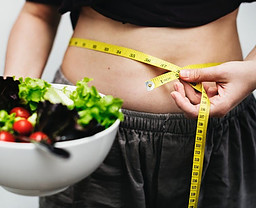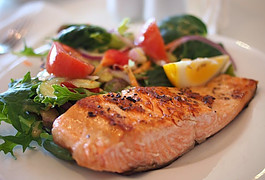Whether you are familiar with intermittent fasting, or perhaps you are even practicing it, occasionally or often, you always have to consider what is good for your health. Your health should be the primary reason for doing something or not doing it.
What I will be covering in this post is health benefits on intermittent fasting: are there any or does it hide some potential health risks. This post is not against fasting, and I will not say should you or should you not be fasting.
The Facts on Intermittent Fasting
According to Wikipedia, intermittent fasting is energy or calorie restriction in diet plans that cycle between fasting and non-fasting over a defined period of time.
There are two methods of intermittent fasting: whole-day fasting and time-restricted feeding. Also, variants include modified fasting with limited caloric intake during fasting periods, 25% of average daily calorie intake.
However, people react differently in their ability to tolerate fasting, so it is essential to pay attention to your body’s responses and what it is telling you. Extreme hunger and the release of stress hormones are common reactions.
Although hunger can be seen as the worst problem, many people on longer fasts reported that hunger typically disappears after the 2nd day.
Fasting isn’t restricted to gender or sex; however, people who have an eating disorder, like bulimia or anorexia, or even just a tendency towards disordered eating patterns, people who are severely underweight, pregnant or breastfeeding women, children and adolescents should not be fasting. Anyone on medications should check with their doctor that these are not contraindicated.
Losing Weight on Intermittent Fasting
Because you restrict yourself from eating, you are taking fewer calories in. And natural assume would be you are losing weight, correct?
The truth is, you are losing weight. According to a study from Oxford Academic that was published in the National Center for Biotechnology Information, eight men and eight women were subjected for fasting for 22 days. Results were a loss in their initial body weight for 2.5% and 4% of initial body fat mass.
During the fasting period, leptin hormone decreases which causes hunger. A lack of leptin in the body means the brain won’t necessarily register satisfaction and hunger could remain elevated. And here is one danger: rapid leptin level fall may push people toward overeating.
Another danger is that during fasting, just like during any other diet, you are not only losing fat, you are losing muscles. In fact, because you are taking fewer calories than needed for normal body function (which is about 2000 per day), your body will first start to spend muscles and only AFTER will start using fat. Fat is essentially not used energy that is stored in the body.
Low Carb vs Intermittent Fasting
Some suggest Intermittent fasting is better than low carb, some suggest otherwise. Several studies have been written on that matter. Results they show was that both gave decent weight loss. Not because calorie intake was lower. Well yes, it was lower, but more importantly, a decrease in insulin level is what brings to weight loss.
I have read good comparisons when trying to scale which is better. It is like asking who is more powerful: Batman or Superman. In case you haven’t watched the movie, go and look at it. But to stick to the topic: the most powerful one is Superman… and fasting. No diet will ever beat “no diet” when it comes to weight loss.
However, a low carb diet can give up to 70% of the benefits of fasting. And that would be without fasting. Not bad actually. In fact, pretty superheroic. Like Batman.
Refined carbohydrates are the biggest stimulants to insulin, so reducing carbs reduces insulin. Fasting, by restricting everything, also keeps insulin down.
In this study was a comparison of a carb-free diet vs fasting vs standard diet. Both carb-free and fasting lowered blood sugar significantly but fasting done it even better.
When you aim to reduce blood glucose, nothing really beats fasting. But the carb-free diet gave roughly 70% of the benefits of the fasting, and as we mentioned, without actually fasting.
So reducing insulin is the best method of lowering your weight. You can reduce blood sugar by 50-70%with a carb-free diet, and an additional 30% with fasting.
How to Start Intermittent Fasting
If you are not prone to fasting the entire day, you may want to choose a popular 5:2 plan. It involves eating regularly for five days and eating very little for two days. In those two days, you will cut caloric intake to 25%.
So, if you regularly eat about 2000 calories per day, during fasting days, you will have to eat 500 calories. People typically space their fasting days out, for example, by taking their reduced-calorie days on Monday and Thursday or Wednesday and Saturday.
Because each person’s body may respond differently to fasting, there is no correct way for that. The principle is to consume 25% of your regular calorie intake.
For example, some people need to start the day with a small breakfast, while others noticed that eating breakfast will make them feel hungrier throughout the day. So these people may want to wait as long as possible before having their first meal.
Your meal plan may include:
- eating three small meals (early breakfast, afternoon lunch, and late dinner)
- eating an early lunch and dinner
- eating a small breakfast and late lunch skipping dinner
- eating a single meal at dinner or breakfast
It is vital to keep the body satisfied on fasting days by eating foods that are rich in filling nutrients such as fiber and protein. Eating more vegetables may help you feel you are not lacking during a meal. Vegetables can be very low in calories compared with animal products and grains, meaning more vegetables can fit into a small meal.
Dark, leafy greens and salads are perfect to help you feel fuller without eating extra calories.
As for proteins, you should aim for small portions without too much fat, such as :
- white fish
- eggs
- lean animal cuts
- tofu
- beans, peas, and lentils
HINT: Avoid extra oil and fats by boiling, grilling or roasting instead of frying.
DRINK PLENTY OF WATER! Water is your strongest ally during the fasting days. It will help you stretch the time between meals and keep you feeling hunger pains. If you don’t drink plenty of water, add few drops of lemon. Or make yourself a tea, but without sugar.
Another great way to consume a sufficient amount of liquid is soup. Just remember not to add meat or oil into the soup while you are preparing it.
Avoid processed foods that are typically refined and high in calories, refined carbs such as bread, pasta, and white rice and excess fats from cooking oils, animal fats and cheese.
Here is an example of meals you can use during fasting days:
- a generous portion of steamed vegetables with spices and salt
- vegetable soup
- two hard-boiled eggs
- a small cut of steamed white fish
- a generous portion of salad with fresh vegetables
Conclusion
Intermittent fasting is not for everybody. Not everyone can stick to not eating the entire day. Even 5:2 plan might be just a bit too much for some.
However, facts that fasting does lead to weight loss can’t be overlooked. Still, the potential risk that you may fall to temptation and overeat is great.
Also, don’t forget that while fasting, you are adjusting your body to lower calorie intake, so when you go back to normal, your body will use less energy for everyday function, and you will become more tired as a result, so you may find it difficult to do your daily tasks.
A diet with less meal frequency can improve the health and extend the lifespan of laboratory animals, but its effect on humans has never been tested. Read the study here.
I hope you have learned something new and gain some insight into health benefits on intermittent fasting.
If you find this article useful, why not share it on social media? Also, feel free to comment and ask questions if you want to know anything more. Or send me a message at dalibor@best4yourbody.com
I am looking forward to seeing your comments. Have a great day and till next time, remember, your body deserves best, and so do you!
Dalibor


